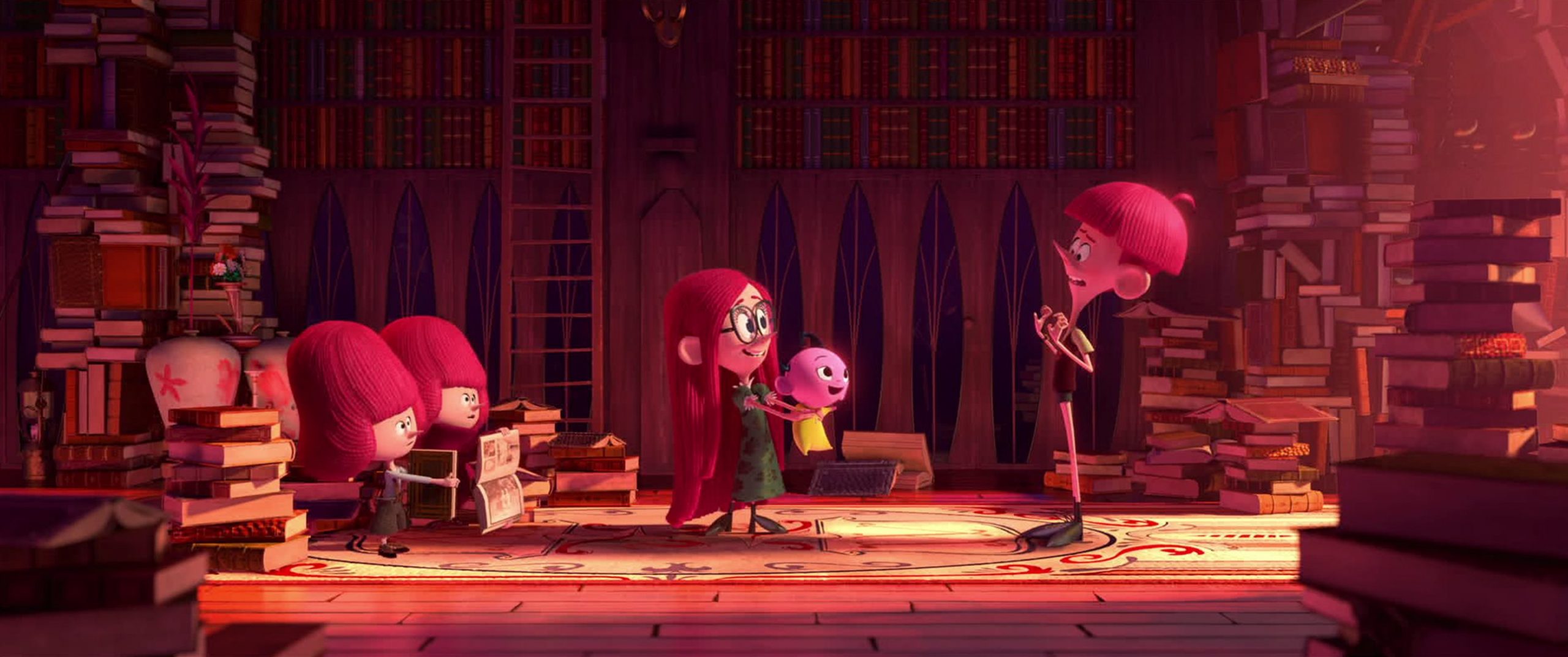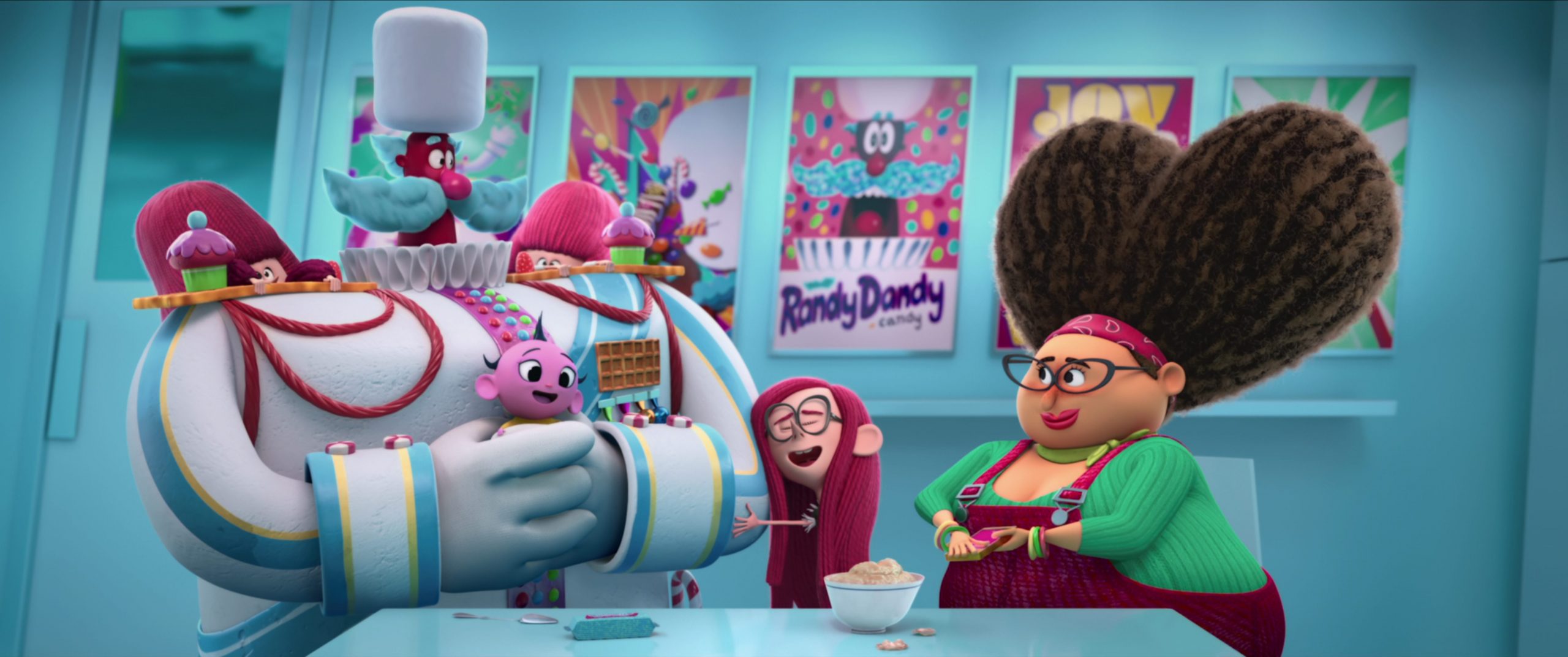At the beginning of Netflix’s offbeat animated feature The Willoughbys, dreamy daughter Jane (Alessia Cara) declares that since all the heroes in the books she and her siblings love are orphans, finding a happy ending free of their horrible parents means they ought to be orphans too. That statement sets the tone for The Willoughbys, based on the book of the same name by children’s author Lois Lowry (who also wrote The Giver and Number the Stars), directed by Cloudy With a Chance of Meatballs 2’s Kris Pearn. As the four Willoughby children navigate their expectations of family and stories, the movie examines some of the specific elements of children’s media, then neatly dismantles them.
Subverting tropes in animation isn’t anything new. 2001’s Shrek led a whole new wave of kids’ animation flipping fairy-tale staples on their heads, a tradition that goes back at least as far as The Rocky and Bullwinkle Show’s Fractured Fairy Tales. But instead of undermining expectations with cynicism, The Willoughbys offers an alternative that still leans into the importance of love. That mentality, coupled with animation that makes full use of the medium to tell an engaging story, makes The Willoughbys an endearing good time.
Visually, the movie is stunning. The stylized CG is reminiscent of stop-motion films. The character designs and backgrounds look like they were put together out of craft materials. The way the characters and camera move evokes the slightly choppier feel of stop-motion animation, with frames pulled out to achieve the effect. The film renders an off-kilter world, perfect for an exaggerated storybook-inspired tale.

The care in the crafting extends from the animation to the delightful character designs. The Willoughby family is rendered as spindly and almost Tim-Burton-creepy, while Maya Rudolph’s Nanny is basically stylized like a giant heart, representing the love and fullness she’s bringing into the kids’ lives. While the character designs are well thought-out, they also have rich arcs and backstories and voice-acting that carries the movie.
The Mary Poppins-inspired Nanny and the Willy Wonka of this world, Commander Melanoff (Terry Crews), who could just be zany one-dimensional fantasy figures, have nuance and depth — as well as a sense of self-awareness of how strange their stock character archetypes are. But all their familiar character clichés are backed up with backstories that are naturally fleshed out over the course of the film, giving some specific life to what otherwise could have just been “eccentric nanny” and “reclusive candy mogul” stock types.

Even the mean parents, who could very well be generic villains, have specific quirks and theatricality that make them particularly fun to hate. Mother (Jane Krakowski) is constantly knitting, spinning her yarn from Father’s (Martin Short) hair. They speak in ridiculous old-timey movie accents and dance on top of tables because they’re just so in love with each other, but they toss their kids into the coal bin if they dare to ask for dinner.
The auxiliary adult characters flesh out the movie, but the children ground the heart of the story. They each have a distinct design and physicality, and vocal styles that imbue them with an extra layer of thought. As slightly creepy twins Barnaby A. and Barnaby B., Seán Cullen delivers a delightful, mildly spooky monotone. The twins hover in the background, never really moving, creating fantastical inventions in the blink of an eye. Daughter Jane drifts across the screen like a feather in the wind, her voice just as floaty and wistful. Oldest son Tim is spindly as his parents, but with less of an awareness of how he moves. Will Forte delivers his lines with overly exaggerated gravitas, perfect for a kid who feels like he needs to be the man of the house for his younger siblings.
As the children define their own story, they make decisions based on what their favorite book characters would do, which offers some hilarious moments. By the time the movie’s climax rolls around, it’s pretty clear that it won’t unfold the way the kids want it to. The animation decisions in The Willoughbys heighten the message of redefining family, connecting the medium directly to the storyline. This is a movie where the creators delight in the fact that they’re working in animation, not one where marketing tried to cover up the medium. The storybook-like message about finding family comes through even more fully when the whole world feels like a cozy picture book.
The Willoughbys is now streaming on Netflix.
